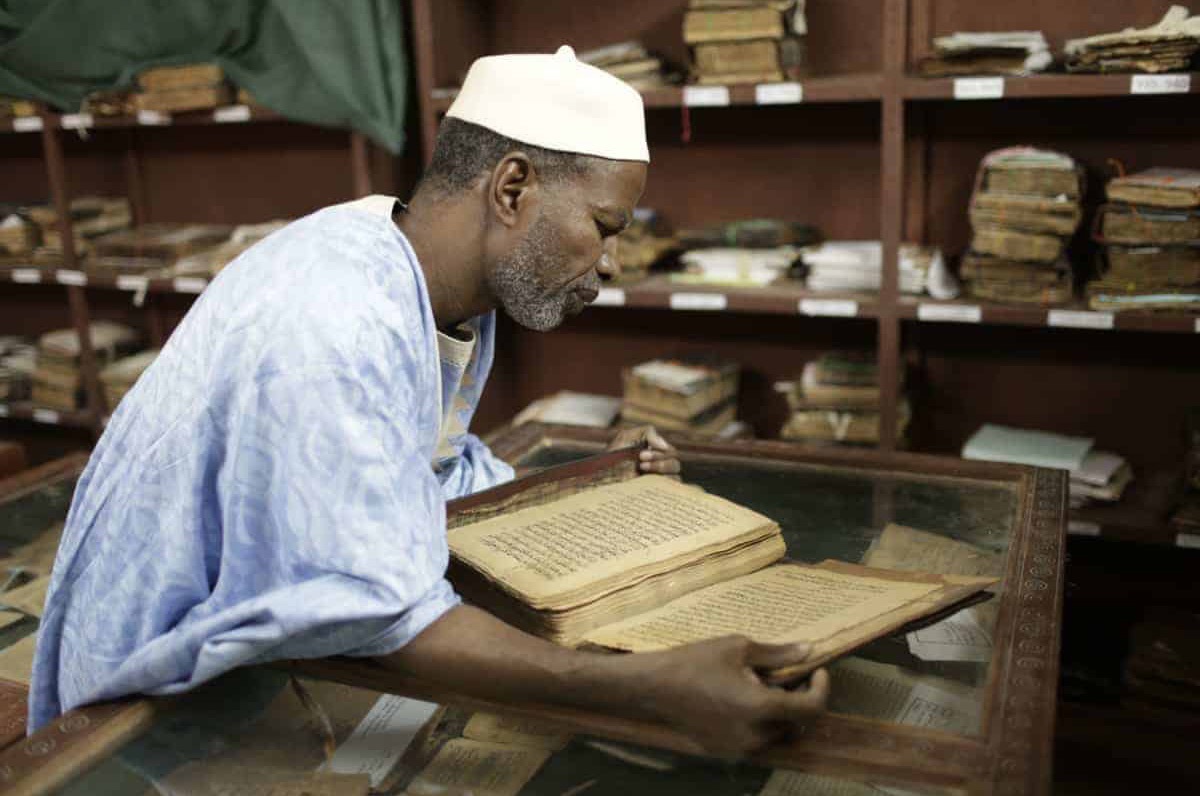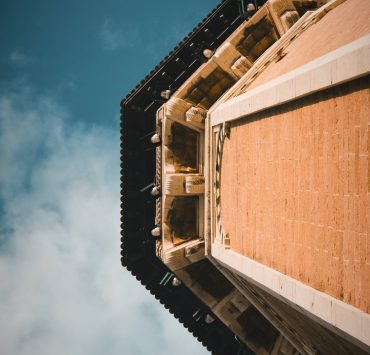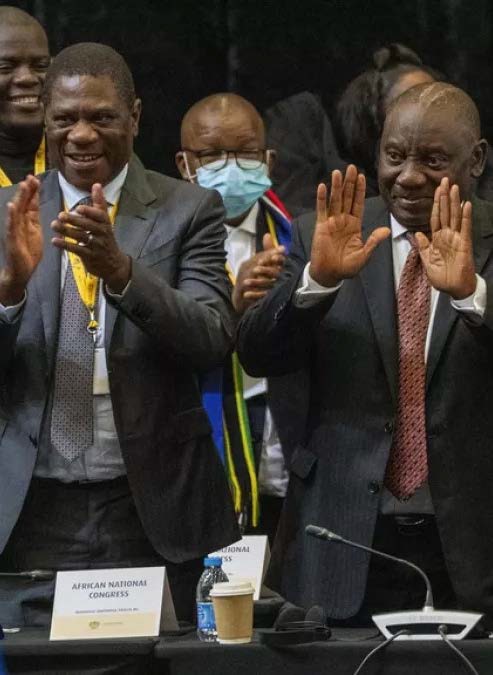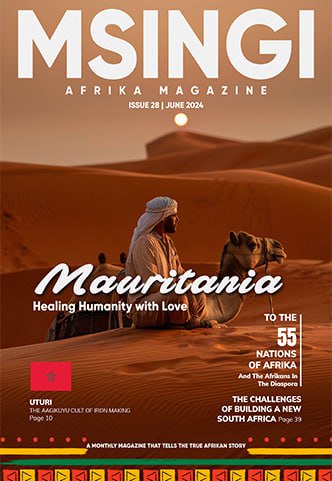The History and Development of Education in Afrika

I am a lover of all the diverse african dances…
African people were uneducated and could not read and write before colonizers entered the scene, right?
European education is the best that could have happened to Africans, right?
There is no positive future for Africans on the continent, right?
In the following article I will be exploring education systems that existed in Africa and how the education changed during colonialism and what struggles Africans are experiencing today in regard to education. I will conclude with answering the question: Where do we go from here?
So let’s start.
What is Education?
Education can be a process through which an individual is integrated in the society and learns how to live by the rules and values of the given society.
Education can be a tool for passing on generation-old wisdom, theories of how nature works and facilitating the gain of skills for manual labor.
Education can also be a synonym for a school or university degree.
Historical context of Education in Africa
To understand today’s educational processes, it is crucial to look at history and connect history with today’s situation on the African continent.
Pre-Colonial Education
African societies aren’t a monolith and never have been. But a lot of African societies across the continent educated each other through oral literature. That could take the forms of folktales, myths, proverbs and songs. Nevertheless, there were African societies that had formal educational institutions as seen in Mali, or ancient writing systems, as you will see later.
The family unit and tribal institutions were the main places where education-related processes happened.
Generally, the elders were the teachers. They taught the youths about their history, their cultural heritage and about the customs and laws of the specific African society they lived in. The teachers were a respected authority and not to be questioned. This is trait of the traditional African way of education that surely survived. It’s a common experience of Africans and African decedents, that you would have to listen to Africans who are older than you and that it’s generally not well received if you question what the elder person has to say to you.
Africans were educated in intellectual and manual labor. Traditional African societies produced everything that they needed on the continent. Therefore, common skills that people had to learn were, for example: farming, dancing, textile production, fabrication of metallic tools, wine making, producing traditional/herbal medicines, cooking and carving of wood.
It would happen that certain families specialized in a certain profession, and knowledge would be passed on to their children. Hence the profession would stay in the family for many generations. Unfortunately, knowledge could be lost when the keeper of the knowledge died, or lost his or hers mental abilities.
Besides apprenticeships and oral literature there have been formal education institutions on the African continent.

There are ancient African writing systems which emerged before Europeans were permanently present in Africa.
Commonsense tells us, that where you can find written languages, there were most likely people who learned how to read and write and who passed on this knowledge. Commonsense would also assume that there would be a complex societal structure which would fill the writing systems with content and knowledge of people.
Here are some examples of ancient African writing systems including their region and time of creation:
Gicandi symbols: Kenya
Circa 3000 BCE
Meroitic: Sudan
Circa 700- 300 BCE
Nubian: Sudan
8th – 15th century CE
Youngest text from 1485
Ge’ez: Ethiopia
Since 8th century
Nsibidi: Nigeria
Circa 5th -15th century
A-Ka-u-ku: Cameroon
17th century
Vai: Liberia
1830
And as we all know Egyptian and Sudanese Hieroglyphs, found on various pyramids, are also located in Africa.
Between 1850 and 1990 many more African writing systems were created, such as the N’ko script and others.
Other examples of formal education can be found in Timbuktu, Mali and Ethiopia.
Timbuktu was the center of Islamic learning from the 13th to the 17th century.

Timbuktu’s economic success attracted many scholars, and strengthened the teaching of art, religion and science. About 700,000 manuscripts have survived until today, and are studied and translated in an attempt to learn more about the life and society in Africa in the past.
Ethiopia, maintains two educational systems. The traditional system relies mostly on Christianity. Christianity arrived in Ethiopia around the 3rd century. The modern educational system includes primary and secondary school and was introduced by the Ethiopian Emperors Menelik II (1889-1913) and Haile Selassie I (1930-1974).
Changes to the educational system during colonialism
When colonizers arrived, they brought their educational systems. This led to the decrease of traditional African education. It is important to note, that Europeans did learn African languages in order to operate freely, trade with and learn from Africans.
The infiltration of African education started with European missionaries, who often also taught non-religious content. After the Berlin conference of 1884/85 the education systems were changed formally to European ones. Until African countries started to regain their flag independence, the colonial powers imposed heavily euro-centric curriculum on Africans, so that it was –and still is- difficult for African societies to return to their traditional education systems.
The different colonial powers did operate slightly different, while all of them made access to education very difficult for the African population. They used tactics such as limiting the teaching language to European languages, and limiting teaching curriculum so that they did not reflect any Africa related content.
The French used education as a tool to facilitate relationships with the African elites. They established very selective educational institutions. And the British relied heavily on missionaries and churches to teach euro-centric worldviews, whereas the Belgians completely forbid access to higher education for Africans.
Westernized education was – and still is – a tool to uphold colonial structures and exploitation of Africans and the African continent. Western education promoted capitalism and the ‘natural superiority’ of European people. It completely changed the lifestyle of Africans through measures such as:
Converting Africans to foreign religions
Banning music and dance from curricula
Abolishing indigenous literature.
Western education did also put a big emphasis on the importance of material wealth as measure of success which led to the general despise of manual labor.
Where is the big difference between western and African education?
African education tends to focus on the wider society. Pre-colonial Africans mostly lived a community based life. So Africans would consider the whole society and its needs in their decisions, whereas western education tends to focus on the individual and forgets the individual’s impact on the whole society.
[Disclaimer: I am talking about my own experiences in the next part]
Even today, if you visit Europe and Africa, you will feel the difference between how people tend to operate. In Europe everyone is so caught up in minding her/his own business, that people just pass and move on when they see people fighting, suffering, hurt or just in need of someone to answer their questions.
Opposed to that, African-life is a little more community based and communicative. Africans can travel to places which they never have been before, and when trying to find a friend’s place, they can ask any stranger for directions, and at the end of the journey they will find themselves in front of their friend’s house. And also conflicts between people generally don’t go unnoticed.
Ok, let’s move on.
What are the today’s struggles of Africans related to
education?
Today, the western education systems are still very present on the African continent, are adapted to a European lifestyle and reflect Euro-centric curricula. The lessons are still mostly held in European languages like English, French or Portuguese.
A few African educational traditions have survived, such as griots and numerous African proverbs.
Statistics
In 2013, about 79% of primary school age children were enrolled in school in Sub-Saharan Africa.
The same region has one of the highest rates of education exclusion (2019):
Circa 1/5 of the children between 6 and 11 years are not in school
Circa 1/3 of the children between 12 and 14 years are not in school
Almost 2/3 of the children between 15 and 17 years are not in school.
Reasons for those education rates
Many of the reasons why some young children and a lot of teenagers are not going to school are born out of poverty and a lack of infrastructure.
Since many well-educated Africans are not happy with their possibilities for employment, they are migrating to Europe, North America or Asia and consequently, the already small supply of teachers is even getting smaller.
Also, in rural areas, proper schooling facilities are missing and the areas are not attractive to employees. In some of these areas there are no schools but learning centers, in which children are just taught basic knowledge such as reading, writing and simple mathematics. A reason for this can be found in the current urbanization, which causes many Africans to move from rural areas and villages to the big cities.
In addition to that, access to basic needs such as, for example, water or menstruation products can keep children, especially girls, from attending school regularly.
Furthermore, there is evidence that children, who are taught content in a second language, achieve poorer results than children, who are taught content in their native language.
And last but not least, the government simply does not spend enough money on the educational sector. Nigeria, for example, had banned history from the curriculum for about 10 years for financial reasons.
Where do we go from here?
Unfortunately, globalization is a justification of why euro-centric curricula are a good choice. English is a language, which facilitates communicating globally, since a lot of people speak English and use it as a trade language. It is no surprise that most young Africans are dreaming of migrating abroad, when all they learn is how great the western world is and how poorly equipped the African continent supposedly is.
A complete return to the traditional African education seems also to be difficult, because every group which does not keep up with technological advances and innovations is easily dominated.
The westernized education system in Africa has to be revolutionized and revised.
How is it possible that Africans are learning more about Napoleon than Mansa Moussa?
African centered history should be taught in school.
And how can you learn properly, if all your life happened and happens in your native language and all of a sudden people try to explain the world in a foreign language to you? It is easy to conclude that Africans may just not be that intelligent or too lazy to learn, when in fact it’s super difficult to understand complicated context in a language, which is not your own. If you would teach science in Twi, Swahili, Lingala, Wolof, Xhosa or Yoruba, Europeans would stop to understand the newest scientific developments, whereas Africa would be full of high-quality-scientists. Not that there aren’t any great African scientists, but there would definitely be more young people, who would choose this path.
African languages should be taught in schools. There are enough writing systems to translate knowledge and make it accessible for more Africans.
Music and dance are important aspects of African societies. Every happening of the circle of life has a specific drum rhythm and a specific dance. It is safe to say, that no special event will pass without music and dance. African traditional rhythms and body movements are found everywhere in the Diaspora. It gives African descendants pride all over the globe.
Traditional African music and dances should be taught in school.
Education is one of the main keys to the development of the African continent. Only someone, who knows his/her past and has the ability to understand the mechanisms of the globalized world, can free him-/herself and flourish. If people do not understand, why they or their country are in the situation that they are currently in, they cannot find solutions. If you cannot see, how the divisions among us Africans and people of African descent prevent us from going forward, and open doors for further exploitation, we will continue to suffer. Education should be a priority in Africa.
(Even though I am aware that someone who suffers in poverty will occupy his/her mind with meeting their basic needs rather than learning something. That’s a topic for a whole new article.)
We have to find a way of combining traditional African education with modern knowledge. It is not about choosing one over another. It is about balancing it out in the favor of Africans.
If Africans found pride in themselves, if Africans came together, if Africans knew their history and if Africans learned from mistakes that we and the world already made, then we would be ready to rise up and write a new positive chapter of the history of the African continent.
Africa is the future. So we should equip young Africans with the necessary tools to create and influence this future in the best way possible.
What's Your Reaction?
I am a lover of all the diverse african dances and music. I am a social worker. I am in search of truth I am of German-Senegalese origin. I am always learning. I want to share and exchange knowledge. I believe that education is the key. I believe in the power of african unity. I believe that Africa is the future and the place to be.


















